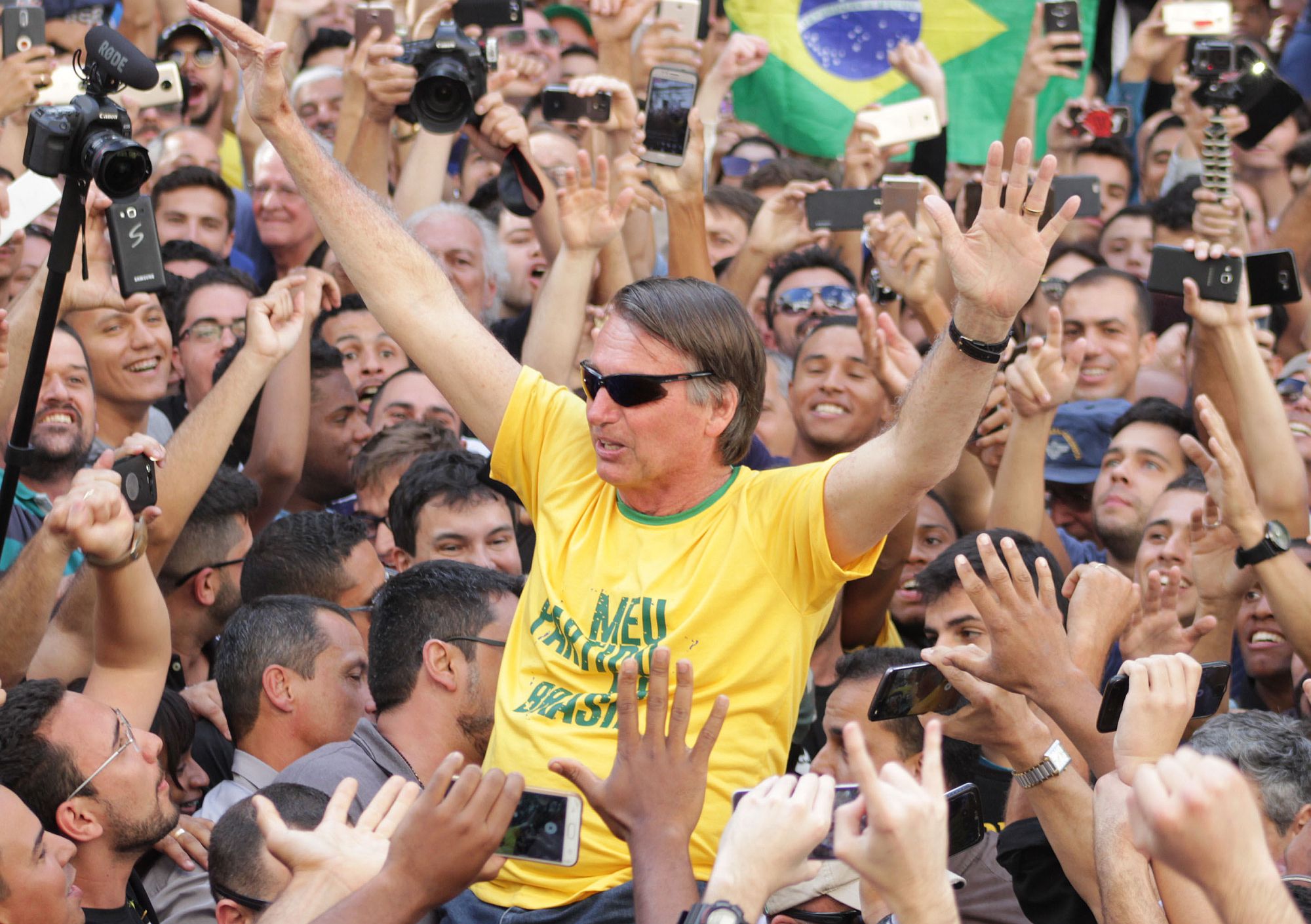by FLAVIA BELLIENI ZIMMERMANN

For 21 years Brazil has experienced a brutal military dictatorship which lasted from 1964-1985. Since Brazil’s reopening to a democratic system and with the advent of the 1988 Constitutional Charter, Brazil has struggled to consolidate the Rule of Law and the fight against corruption.
As Brazilians hit the ballot box this weekend, it is time to reflect upon the country’s current political environment. This weekend’s elections are different from the previous ones: this is the first time since the end of military rule that a far right candidate is one of the leading contenders and has a strong likelihood to become the next Brazilian president.
Brazil has been suffering from staggering recession and corruption scandals such as the Car Wash Operation and the Petrobras scandal, which made international headlines.
These mega corruption scandals lead to the impeachment of former Brazilian president Dilma Rousseff from the Worker’s Party (PT) and the imprisonment of former Brazilian president and Rousseff’s political predecessor Luiz Inácio Lula da Silva (Lula), also from the Worker’s Party (PT).
Some argue that Lula’s imprisonment and his highly politicized trial was a political maneuver to keep him away from the presidential race, as his approval rate is still very high. Nevertheless, a decision from the Brazilian Supreme Electoral Tribunal (TSE) ruled against his bid to run for president.
Lula’s frustrated presidential bid has embittered his supporters, which claim that his trial, arrest and impossibility to run the presidential race was a coup d’état and an assault to Brazil’s democracy.
Brazil is a society suffering from major socioeconomic divides, which have been aggravated over the years and with the current economic recession. Dilma’s impeachment process and Lula’s arrest have increased the antagonism between the right and left.
Today, Brazil is a highly divided society. And this presidential race is the most unpredictable and contentious election since the country’s reopening to democracy in the 1980’s, in the presidential battle between Luiz Inácio Lula da Silva from the Worker’s Party (PT) and Fernando Collor the Mello from the National Reconstruction Party (PRN).
Once again history repeats itself with polarizing platforms from the two leading candidates, left leaning candidate former mayor of São Paulo, Fernando Haddad, from the Worker’s Party (PT) and a far right candidate congressman and former army captain, Jair Bolsonaro, who is riding high in the polls.
Bolsonaro is a highly controversial individual who represents the repressive and authoritarian Brazilian political heritage. Depending on elections results, Brazil could be once again moving towards an increasingly authoritarian and repressive government, compromising democratic rights and freedoms.
Bolsonaro is seen by many as an unreconstructed apologist for the military dictatorship that ruled Brazil from 1964 to 1985, having dedicated his vote in favor of Dilma Rousseff’s impeachment process in 2016 in memory of Carlos Alberto Brilhante Ustra, a well-known perpetrator of atrocities and a notorious torturer of dissenters during the military regime.
Additionally, Bolsonaro stated unashamedly that Brazil’s military dictatorship should have been ‘tougher’ and should have killed far more dissenters than it actually did, suggesting that the military regime should had killed ‘at least 30,000 people instead of only several hundred’.
Brazil’s far right and increasingly popular presidential candidate upholds controversial views on individual rights and the rights of homosexuals and women.
Bolsonaro openly argued that parents should “beat homosexuality out of their children” from a young age. It is well known to the Brazilian and international press that in 2014 Bolsonaro openly stated that “he should rape” his female political opponent congresswoman Maria do Rosário from the Worker’s Party (PT).
In 9th December of the same year he stated in Congress that “he would not rape her… as she did not deserve it.” On the same day Bolsonaro uploaded on his official congress page a video entitled ‘Bolsonaro escova Maria do Rosario’ (Bolsonaro humping Maria do Rosario).
Brazzil for more